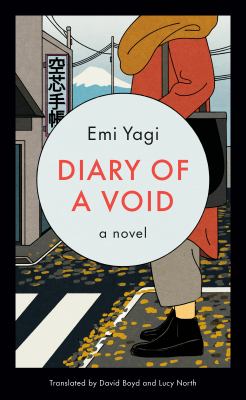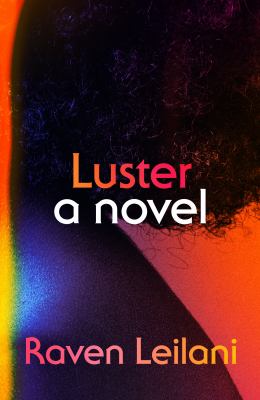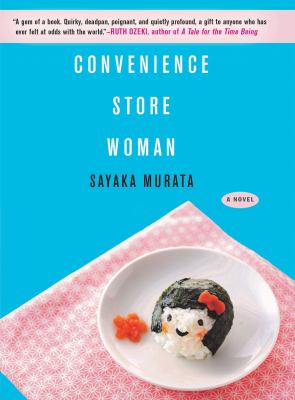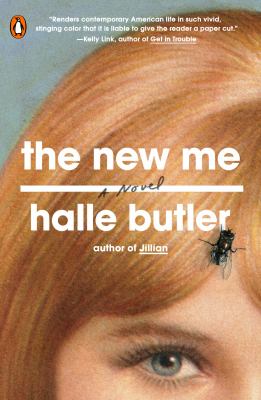Literature’s contemplation of the banality of existence was once a male-dominated field… but not anymore! If you are interested in narratives of women wading through dread and anxiety, who seek meaning and intimacy in strange, desperate, and painfully human ways, you have a breadth of material to choose from. Here are four books I’ve enjoyed concerning that continued struggle: women vs. the void.
Halle Butler is a terrifyingly talented writer of feel-bad fiction. I picked up “The New Me” after reading her first novel, “Jillian” (which, arguably, deserves a place on this list, but I chose the more redemptive of the two). This is the story of 30-year-old Millie, an unfulfilled temp worker living alone in Chicago. When she’s not shredding documents and answering phones, she’s hanging out with her awful friend Sarah, or watching “Forensic Files.” Frequently, she’s struck by a powerful feeling of optimism; an urge towards self-reinvention that inspires her to vacuum, or scream, or go online shopping for stylish outfits she will wear to the respectable full-time job she is sure she will have someday, if only life would show her a little kindness…
“I get socked in the chest, thinking about how things never change. How they’re on a slow-rolling slope downward, and you can think up a long list of things you’d rather do, but because of some kind of inertia, or hard facts about who you are and what life is, you always end up back where you started, sitting drunk on a hard, sticky chair with someone you hate.”
I rooted for Millie, I was repelled by Millie, and through it all I felt a real tenderness for this weary, hopeful soul (Thank you, Halle Butler. I await your next novel eagerly, and with dread).
My next recommendation, Emi Yagi’s “Diary of a Void,” bravely asks the question: What would happen if you hated your job so much you faked a pregnancy? Hopefully, you’ve never considered this course of action yourself. But 34-year-old Ms. Shibata is at a breaking point. She left her last workplace to escape the sexual harassment, only to face a different kind of mistreatment at her new job in Tokyo — the men turn to Shibata, the only woman in the department, for every office chore and menial task. All of that changes when she tells them the big news: she’s pregnant!
Hopefully, you’ve never considered this course of action yourself. But 34-year-old Ms. Shibata is at a breaking point. She left her last workplace to escape the sexual harassment, only to face a different kind of mistreatment at her new job in Tokyo — the men turn to Shibata, the only woman in the department, for every office chore and menial task. All of that changes when she tells them the big news: she’s pregnant!
Okay, maybe she lied. But no one asks the pregnant woman to make the coffee or take out the trash. The lie pays off immediately, and it’s easy enough to keep up appearances. As the weeks go by, Shibata commits to the role, until even we can’t quite tell what’s real anymore. If this premise sounds too far-fetched for you, don’t worry. The real intrigue doesn’t come from the ruse; rather, the soul of the story is revealed in how Shibata’s “pregnancy” changes her relationship with herself, allowing her to imagine a different kind of life:
“It doesn’t need to be a big lie — just big enough for one person. And if I can hold on to that lie inside my heart, if I can keep repeating it to myself, it might lead me somewhere. Somewhere else, somewhere different. If I can do that, maybe I’ll change a little, and maybe the world will, too.”
 Edie, the sharp, restless protagonist of Raven Leilani’s “Luster,” has spent her fair share of time dreaming of somewhere else, somewhere different. Her joyless administrative job, the prescribed responsibilities of which hardly compare to the weight of being one of two Black women in the office, is barely paying the bills on her mouse-infested Brooklyn apartment. She languishes at the only thing that means anything to her — painting. She copes by sleeping, carelessly, with careless men. Whatever she’s living, it’s not the dream.
Edie, the sharp, restless protagonist of Raven Leilani’s “Luster,” has spent her fair share of time dreaming of somewhere else, somewhere different. Her joyless administrative job, the prescribed responsibilities of which hardly compare to the weight of being one of two Black women in the office, is barely paying the bills on her mouse-infested Brooklyn apartment. She languishes at the only thing that means anything to her — painting. She copes by sleeping, carelessly, with careless men. Whatever she’s living, it’s not the dream.
Enter: Eric, a middle-aged archivist living the picture of suburban bliss, complete with a wife who has half-heartedly agreed to an open marriage and an adopted Black daughter who just wishes someone would show her how to do her hair. Worlds collide! Worlds shift. And Edie is never the same. “Luster” is a downhill sprint of a read; a vibrant, frenzied portrait of a woman; an anthem of survival, tenderly sung.
“Somehow, after being a woman for twenty-three years, after the ovarian torsion and student loans and newfangled Nazis in button-downs, I too am still alive, and actually this is the more remarkable feat.”
While Edie has a habit of filling the void with romantic encounters, the protagonist of my final recommendation has the opposite inclination. Keiko, the captivating narrator of Sayaka Murata’s “Convenience Store Woman,” is sick of being told to find a husband. At age 36, she has never had a boyfriend, has had one job, and if you ask her, neither fact is cause for concern. She loves the pristine, predictable universe of Smile Mart, the convenience store where she was first hired as a student. The job is her emotional center; the store a soothing “world of sound” whose rhythms she has come to know intimately. When she bothers to consider her own personality, Keiko determines, with hilarious precision, that she is a composite of her coworkers:
captivating narrator of Sayaka Murata’s “Convenience Store Woman,” is sick of being told to find a husband. At age 36, she has never had a boyfriend, has had one job, and if you ask her, neither fact is cause for concern. She loves the pristine, predictable universe of Smile Mart, the convenience store where she was first hired as a student. The job is her emotional center; the store a soothing “world of sound” whose rhythms she has come to know intimately. When she bothers to consider her own personality, Keiko determines, with hilarious precision, that she is a composite of her coworkers:
“I am currently made up of 30 percent Mrs. Izumi, 30 percent Sugawara, 20 percent the manager, and the rest absorbed from past colleagues such as Sasaki, who left six months ago, and Okasaki, who was our supervisor until a year ago.”
When a fellow misfit joins the Smile Mart team, Keiko sees an opportunity to shed her single-woman status. Social acceptance finally seems within reach, but still, it eludes her. Keiko’s story tugged at something deep in my soul; some buried frustration at a world that privileges conformity, and never stops demanding it from you. Where, and with whom, can we find some relief? Keiko and I would love to know.
“I just want to exist, quietly breathing.”



